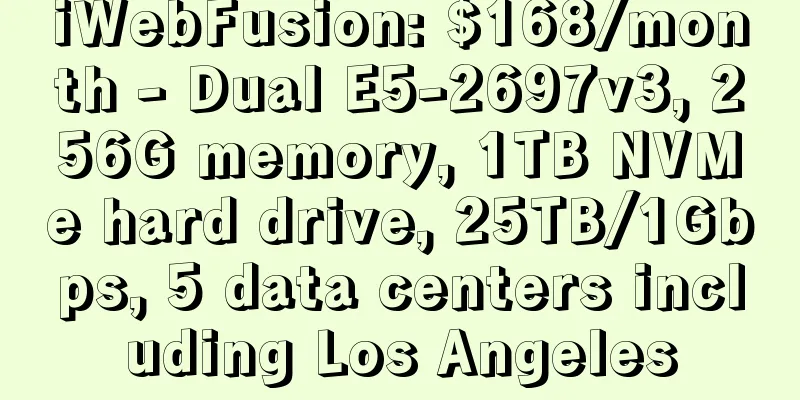Focusing on "Software Defined Cars", F5 injects new impetus into car intelligence

|
Control the air conditioner, adjust the temperature and open the seat through voice, adjust the music played according to the driver's preferences, and experience the panoramic view of 3D maps... Smart cars are speeding on the road of pursuing higher comfort, smarter and safer driving experience. Cars are evolving from traditional mechanical means of transportation to a new generation of mobile smart terminals. Looking at the current automobile market, smart cars are flourishing. According to Morgan Stanley's estimates, 60% of the value of smart cars in the future will come from software, and "software-defined cars" has gradually become a consensus among car companies. Whether it is traditional car companies or new car-making forces, more and more companies have begun to adjust their core business strategic layout, aiming to enhance the core competitiveness of the brand by building smart connected cars. Faced with the new development trend of intelligent networking in the automotive industry, accelerating the development of automotive software applications has become an important part of building and improving the Internet of Vehicles industry chain. Today, automotive applications have become the basis of the car-using experience, and the application architecture has rapidly evolved from the huge and complex single applications in the past to modern applications based on microservice containers in order to quickly respond to complex and changing user needs. F5 Modern Application Services creates exclusive solutions for the automotive industry, achieving efficient, secure, intelligent, and interconnected application collaboration, helping automakers accelerate the rapid development and deployment of intelligent connected car applications, and injecting new impetus into comprehensively improving consumers' car-using experience. Create efficient Internet of Vehicles and achieve data security and reliability As the business applications of emerging technologies such as autonomous driving, Internet of Vehicles, and in-vehicle entertainment systems continue to increase, more and more data and applications will be generated at edge nodes such as each vehicle. These interaction methods are extremely dependent on network quality. Network delays can threaten the driver's personal safety or affect various experiences in the cabin. Therefore, how automakers deal with network delays faced by edge nodes has become a major challenge. In addition, for complex deployment environments, automakers need to create a unified security strategy that complies with various deployment environments such as local data centers, private clouds, and public clouds to ensure the security of vehicle operation data and Internet of Vehicles information. F5 distributed cloud services provide V2Xbox real-time data rapid interaction capabilities based on 5G networks and MEC edge computing bases, which can quickly build edge nodes and form a large-capacity backbone network with large connections, low latency, and high bandwidth, to achieve efficient interconnection and transmission of cross-platform Internet of Vehicles. In addition, the extended connectivity and security of multi-cloud environment nodes provided by F5 ensure the delivery of applications within the cloud and network security between clouds. At the same time, in order to meet the new scenario requirements of electrification and intelligent experience in the automotive industry, user data generated by users at car charging piles, experience stores, etc. are stored in local data centers to meet local data security and compliance requirements. Innovative Internet of Vehicles technology to boost the development of autonomous driving At present, the industry has classified autonomous driving technology according to the intelligence of the system, and has stipulated multiple levels of standards from driving assistance to full automation. The next two years will be a key node for the development of L3 and higher levels of autonomous driving, which will also provide opportunities for the development of assisted autonomous driving software. However, in the process of autonomous driving development, collecting and storing high-quality training data, analyzing and processing it in a timely manner, and being able to release and launch continuously iterated autonomous driving applications are the core of promoting the development of autonomous driving. F5's high-concurrency security protection architecture and high-performance high-throughput forwarding platform can ensure the timely deployment of autonomous driving iterative applications and quickly improve users' autonomous driving experience. The powerful SSL encryption and decryption capabilities provided by F5's Internet of Vehicles solution ensure that intelligent connected vehicles can easily cope with the requirements of timely uploading of large-concurrency, strongly encrypted data, and encrypt transmission through the security protection of HTTP, TCP, and MQTT protocols to ensure the information security of data collection and transmission. For the large throughput, high concurrency, and low-latency data generated by autonomous driving training, F5's Internet of Vehicles automotive solution can use software and hardware parallel acceleration technology to ensure that autonomous driving data is processed in a timely manner. In terms of data storage, in the face of the problem of insufficient native high availability of object storage, F5's distributed object storage architecture supports cross-cloud and cross-center object storage active-active architecture to ensure business continuity. At the same time, it provides monitoring storage service availability based on the object storage protocol and selects the best node, allowing object storage to achieve local access and improve data access flexibility. Efficient and intelligent networking to achieve collaborative interaction between vehicles, roads and networks As cities across the country collaborate to develop smart city infrastructure and intelligent connected vehicles, an intelligent connected vehicle ecosystem that integrates "intelligent roads + smart cars + flexible networks" has gradually taken shape, and safe, efficient, economical, and environmentally friendly vehicle-road collaboration solutions have emerged. However, in order to achieve a fully connected and highly collaborative vehicle-road collaboration solution, a closed-loop control system that can form collaborative perception and collaborative decision-making is also needed. On the roadside, in view of the characteristics of roadside information collection with multiple protocols and complex data, the F5 intelligent network solution can perform protocol proxy and data format customization to achieve standardization of roadside information collection. On the cloud side, F5's multi-cloud and multi-active application architecture supports application access from a variety of deployment environments: in the edge cloud environment, the F5 intelligent network solution allows unified application access, high availability of the MQTT protocol and SSL offloading, to ensure the unified release and management of edge applications; in the regional cloud environment, F5 can achieve multi-factor identity authentication access to the edge cloud, and provide security protection against a variety of emerging attack methods such as DDoS, BOT attacks, API attacks, etc.; in the central cloud environment, the F5 intelligent network solution can achieve multi-active cross-center applications, providing unified service release, unified application detection, unified data display services and highly reliable management for applications. In addition, the high-efficiency data transmission and high security assurance capabilities brought by F5 can build a low-latency, high-interaction infrastructure platform required for vehicle-road collaborative interaction. Building modern application services to empower automotive software development Today, cars are mobile smart terminals. Intelligent systems such as on-board intelligent networking, intelligent driving, intelligent cockpits, intelligent electric vehicles, and intelligent car clouds are driving the exponential explosive growth of smart car applications. They are characterized by many applications, wide distribution, and high performance requirements. At the same time, the large-scale surge in applications, the security protection of applications and data, and the coordinated scheduling in different cloud environments also bring challenges to automotive application R&D and operation and maintenance personnel. As a senior expert in application security and application delivery services, F5 Modern Application Service Platform can provide CI/CD agile development services for software development, and quickly release applications through container platform automation, realize rapid development, deployment and elastic expansion of applications, and provide support for rapid iteration of intelligent software. Security is F5's traditional advantage area. Against the background of escalating offensive and defensive confrontations, F5 Modern Application Service Platform's application security risk control provides multiple security protections such as prevention of DDoS attacks, external access authentication, sensitive data protection, application code reinforcement, Internet of Vehicles protocol security, and API gateway security to protect the interconnection, openness and business security of automotive applications. At the same time, in order to bridge the technical gap between private cloud, public cloud and other platforms, F5 Modern Application Service Platform provides a unified management architecture in a multi-cloud environment to ensure consistent application experience and security protection capabilities. In the era of intelligent networking, F5 is committed to providing flexible, safe and efficient solutions for the automotive industry, helping automakers build a modern application service architecture, bringing a better intelligent car experience, and opening up a better digital future for the automotive industry. |
<<: How to troubleshoot 502 issues? Have you learned how to do it?
>>: What are the future trends of mobile phone connections?
Recommend
The "Six Mountains" that Block Operator Innovation
The recent discussion about the advanced construc...
5G: Number of terminal connections exceeds 200 million
2020 is the first year of large-scale constructio...
Is 5G the missing piece of the digital twin puzzle?
In this always-connected digital age, 5G technolo...
5G deployment makes IoT a convenient part of life
A major shift is happening with IoT devices that ...
Wireshark network protocol analysis: interpreting the TCP protocol and understanding TCP three-way handshake and four-way handshake
TCP Transmission Control Protocol is a connection...
The Legend of Network Protocol (III): The Glorious Family Goes East and West
TCP/IP is the most widely used network protocol f...
Microsoft: Open RAN is crucial to network cloudification and the two will eventually merge
In a comment document submitted to the US Federal...
The “long and short” debate on WeChat video accounts
[[345275]] During the National Day holiday, WeCha...
RAKsmart: San Jose dedicated server from only $30/month, Korea/Hong Kong/Japan/US cluster servers, 1-10G bandwidth servers
RAKsmart is a foreign hosting company operated by...
Talk about Multi-Access Edge Computing (MEC) based on SDN
The development of data generation and data proce...
Starting next year, your home router should be upgraded to Wi-Fi 6!
This article is reproduced from Leiphone.com. If ...
A complete guide to the development of TCP/IP
[[415786]] In the late 1950s, during the Cold War...
Huawei Enjoy 10S is launched: hardcore performance + large battery, a new entertainment choice for young people
With the continuous development of mobile phones,...
Eight networking trends your business should know about
[[386593]] The coronavirus outbreak broke out in ...
6G in 2030: The panacea for enterprises is here again
While 5G is still positioned as a “near-term” gam...









